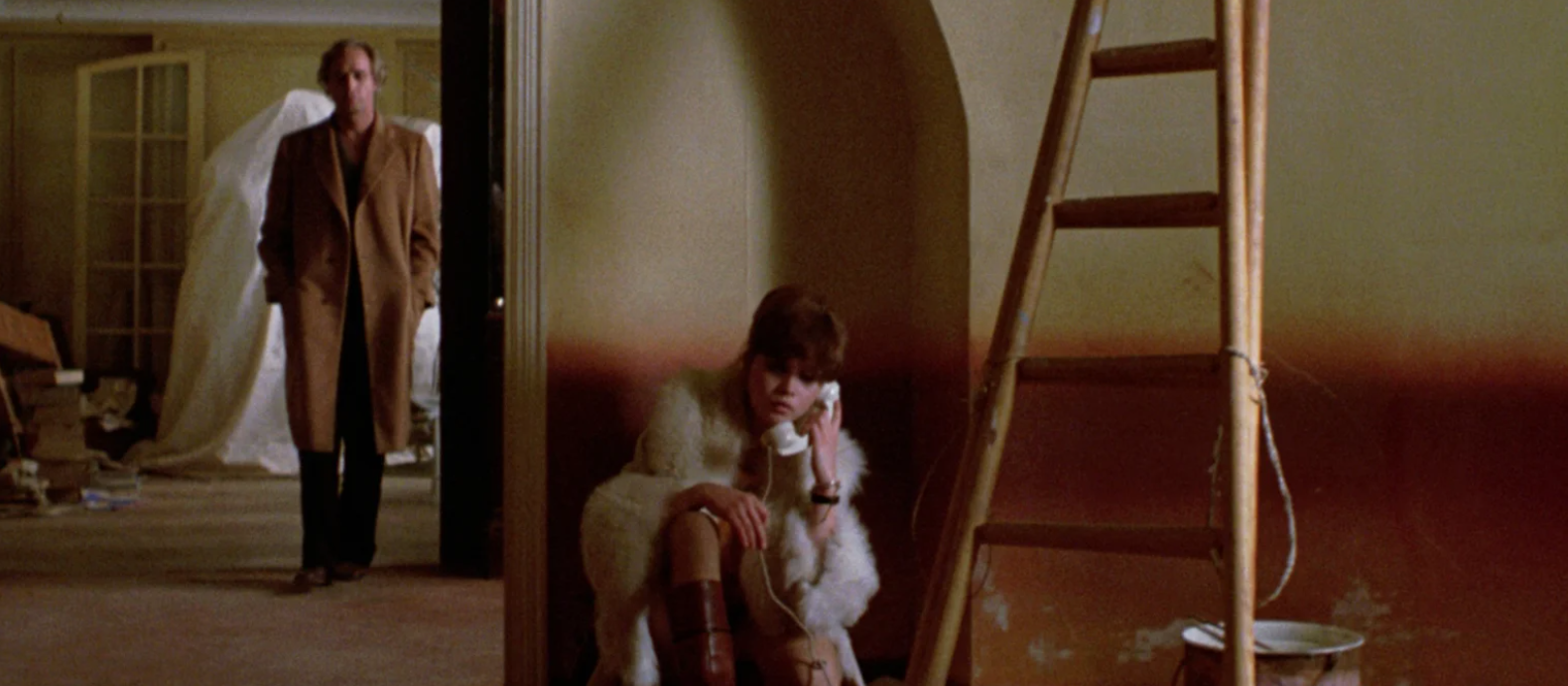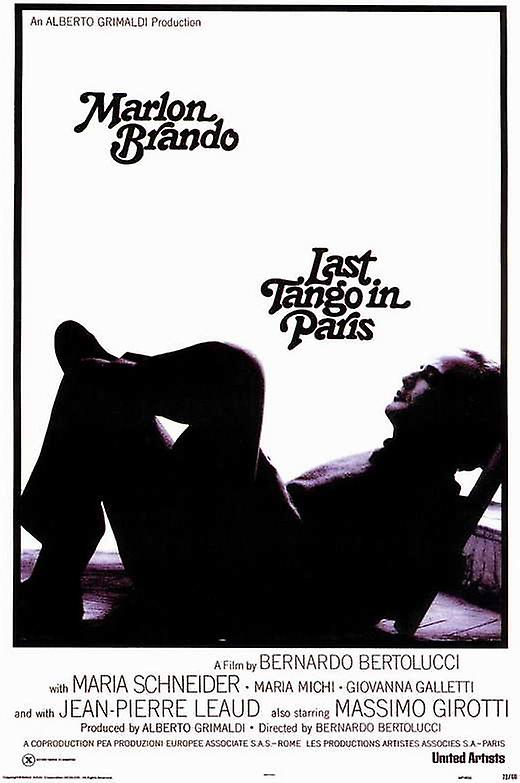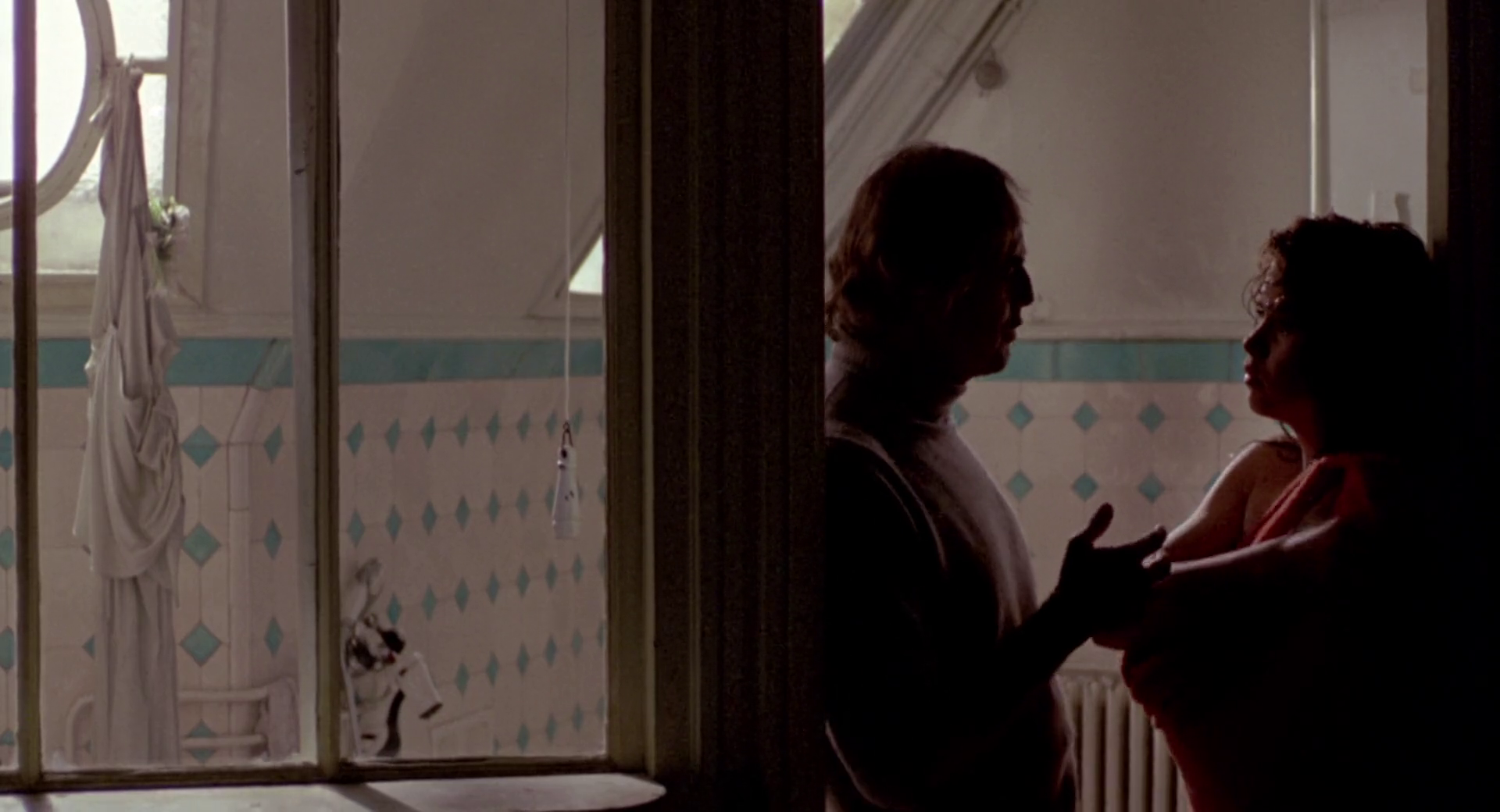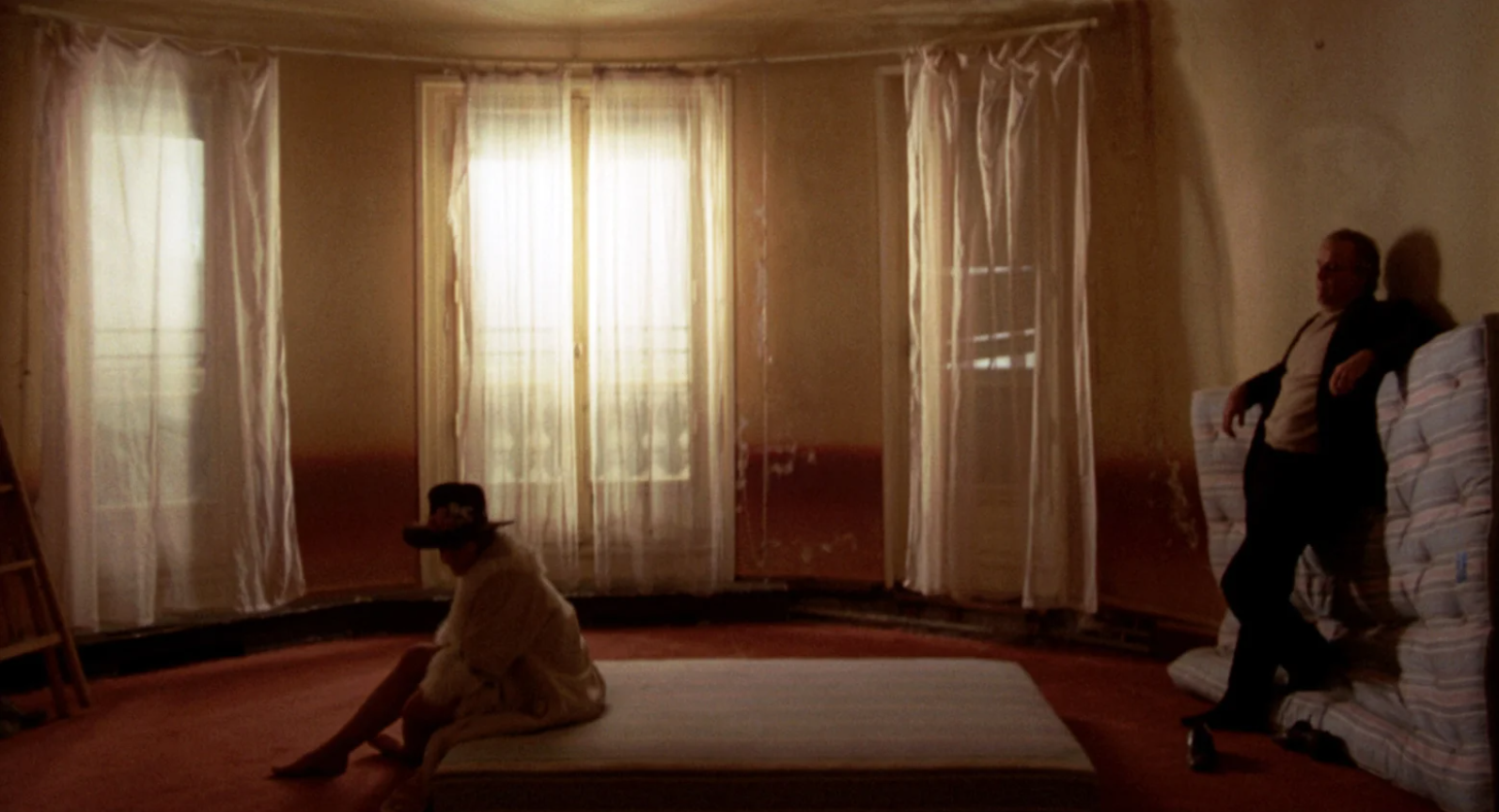

“Our marriage was nothing more than a foxhole for you. And all it took for you to get out was a 35-cent razor and a tub full of water.”
Everyone knows Don Corleone, but Marlon Brando’s turn in The Godfather wasn’t his only great screen performance of 1972. In Last Tango in Paris, playing a forlorn widower who engages in an anonymous affair with a girl less than half his age, Brando is a revelation. Full of obscene monologues, childish antics, and wry smirks, his semi-improvised performance—which, in its most sincere moments, is said to draw upon Brando’s own traumas—puts the viewer in a nightmarish trance and holds them there as Bernardo Bertolucci laces his arthouse exercise with lurid erotica (or, at least, nudity).
After coincidentally meeting in a vacant apartment that’s up for rent, a moment of spontaneous passion finds Paul (Brando) and Jeanne (Maria Schneider) lustfully entangled on the floor. At his request, they agree to carry on the affair as impersonally as possible, shacking up in the apartment for sexual liaisons and silly games, but never sharing names or personal lives. Their arrangement is self-consciously immoral, but given time and proximity, something akin to genuine affection threatens to overwhelm them.
We (the audience) do learn scattered details about both characters, though all but a crucial few feel perfunctory. Jeanne lives with her widowed mother (Gitt Magrini) and is engaged to be married to a young filmmaker (Jean-Pierre Léaud of The 400 Blows) who’s making a 16mm cinéma vérité style documentary about her life that is to culminate in their wedding in a week’s time. (It would be hard to overstate how unsatisfying and downright boring this pretentious French New Wave satire really is.) Paul, an American expatriate, had owned and operated a flophouse with his wife Rosa (Veronica Lazăr) until her recent suicide. Rosa’s extramarital lover (Massimo Girotti)—known to Paul—had resided among the addicts and prostitutes that frequented the fleabag operation. She left no suicide note, and an impassioned sequence sees Brando delivering a stream-of-consciousness confessional to the woman’s lifeless corpse. While Paul’s central trauma provides narrative if not moral justification for his “flying fuck at a rolling donut,” Jeanne’s motives remain incredibly vague.
The thing to keep in mind—and here I simply borrow from Pauline Kael’s famous review—is that Bertolucci is not merely adopting the sexual shamelessness of schlocky exploitation films and shoehorning it into an arthouse film. (And this is definitely an arthouse film—bountiful mirror shots, off-center compositions, sinuous camera movements, an extreme golden-brown palette, a glacial pace. Under no circumstances should you show this to your buddy just because he liked Brando in The Godfather.) Last Tango in Paris is not just a highbrow voyeuristic fantasy that gets the viewer all hot under the collar. No, there are deeply felt emotions here that give the sexual encounters a definite weight. As Kael notes, critics of the time expected eroticism to make its way into the movies, but no one expected “a sex film that would churn-up everybody’s emotions.” Paul is not just a selfish pervert, but a man hellbent on degrading himself; a man whose marital frustrations, grief, ego, and fleeting libido all become bound up in this fiery affair—his teetering psyche momentarily stabilized by Jeanne’s ephemeral presence. It’s an affecting brew, even if one finds the character’s shameful actions less of a “cry for help” (as Ebert phrased it) than unchecked hedonism; even if one finds the drama exceedingly tedious outside of a few select Brando sequences.

Of course, in The Year of Our Lord 2022, there’s a gigantic elephant in the room that must be acknowledged when discussing Last Tango in Paris: the infamous butter sequence, the only remaining element that retains any shock value (eh, well, the fingers-in-butt thing might have some residual sustain). Visually speaking, the film is quite tame by modern standards—even the scene in question isn’t all that tantalizing as far as that goes. Instead, the film tends to make the viewer uncomfortable by implication, and by the behaviors that surround the sexual act rather than the act itself. At issue is the film’s most unsettling moment—a scene in which Paul uses butter as lubricant for a new style of sexual humiliation. What’s interesting to me is that for decades this sleazy silver screen affair was considered a liberating romance, Gato Barbieri’s jazzy soundtrack and Vittorio Storaro’s gorgeous cinematography rendering its wicked dynamic as an irresistible love story. Most did not bat an eye at Jeanne’s acquiescence to Paul’s sexual whims, and few called it rape. It was a cinematic beacon of the sexual revolution, over and above its depressing drama.
But then a stray, possibly misinterpreted comment from Schneider decades later meant that suddenly the scene not only depicted rape (which it so clearly does), but that Marlon Brando had actually raped Maria Schneider—forget Paul and Jeanne! Wait, what’s this? One moment we have an adult (nineteen at the time of filming) playing second fiddle to a towering Marlon Brando by her own volition, willfully turning herself into a sexual object in exchange for money and fame; the next we’re supposed to accept that she’s an infantile little girl who “felt raped” after filming a sex scene that was in the script? And that her feeling that way indicates some moral failing on the part of Brando and Bertolucci, in addition to any guilt associated with filming the visceral depiction in the first place? All because Brando decided to “use” butter? Please, spare me your grandstanding.

Let me put it another way. If you think the film is morally acceptable in script form and when presented on the screen, surely you must agree that filming it is morally acceptable. If the centerpiece of the film is a decaying Marlon Brando thrusting against a nubile teenager, certainly you must have a decaying Marlon Brando thrust against a nubile teenager at some point in the process, right? If a middle aged man engaging in a wanton sexual fling with a teenager is liberating, then Last Tango in Paris is liberating. If all that’s true, then you can feel sorry for the girl all you want, but you can’t claim the moral high ground because you’ve already ceded it. If, on the other hand, you don’t exalt carnal desire as the ultimate good, you can see Brando’s Paul as a pitiable, self-effacing scoundrel and Schneider’s Jeanne as a naïve girl playing with fire; you can accept the film’s characters as hideously morally flawed and still find meaning and resonance in their self-destructive floundering.